Rio Verde Foothills will see water by end of month after Scottsdale approves deal
Rio Verde Foothills residents will have a new source of hauled water by the end of September after the Scottsdale City Council unanimously approved a short-term water agreement at its Tuesday night meeting.
The agreement comes after months of uncertainty for the community, located just east of Scottsdale in unincorporated Maricopa County. It was left without a reliable source of water after Scottsdale cut off its supply in January. City officials cited concerns about ongoing drought conditions on the Colorado River.
The community's standpipe district, established in June by state lawmakers, had already approved the agreement on Saturday. Tuesday's unanimous thumbs up by Scottsdale's City Council was the last major hurdle Rio Verde Foothills needed to jump in order to secure some relief for its residents after nine months of water woes.
“For the first time, the residents of Rio Verde Foothills will have a water source that is not Scottsdale’s water source,” said Councilmember Solange Whitehead, who along with her council colleagues, praised Mayor David Ortega for leading the charge on crafting the agreement that will remain in place until the end of 2025.
The people who made the call: Who is on the Scottsdale City Council? What to know about the members
The council agreed to make two small changes to the proposed deal before the vote. One would require the standpipe district to put together a plan to mitigate traffic impacts caused by water transportation trucks. Another removed the deal's one-year extension option. City Attorney Sherry Scott said neither change will delay the plan's rollout.
“This agreement is a great deal for Rio Verde. It solves the problems that they had and gives them the assurance of a water supply,” Vice Mayor Tom Durham said. “It’s also a great deal for the city of Scottsdale because it disentangles us from supplying (our own) water (indefinitely).”
Here's what to know about the long-awaited deal.
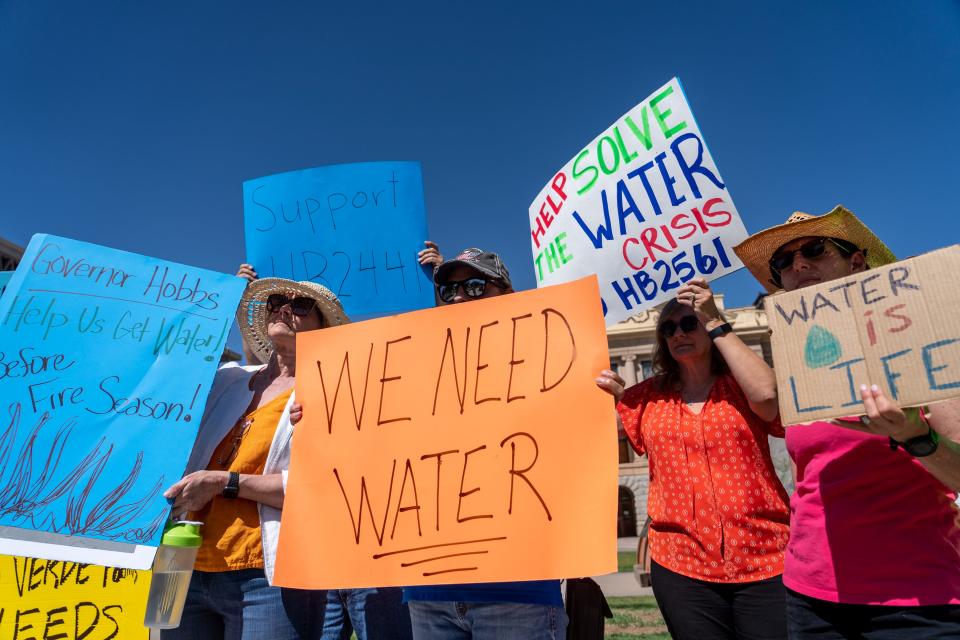
What does the agreement say?
The agreement looks almost identical to one that Scottsdale officials pitched in February to county supervisors, who rejected it. Mayor Ortega pointed that out ahead of the vote by criticizing the Maricopa County Board of Supervisors, which he accused of failing to appropriately address the issue sooner.
“(Those) deal points and the stipulations that we made seven months ago hold true today,” he said. “The Rio Verde Foothills standpipe district, they are civilians trying to understand a novel government entity and they are doing so … in spite of the fact that the Board of Supervisors did not step up on this.”
Under the deal's terms, the community's standpipe district will procure water for Rio Verde Foothills residents from a third party and pay Scottsdale to treat it and route it through its pipes. Haulers could use Scottsdale's filling station at Pima and Jomax roads to obtain the water and truck it to Foothills residents.
The cost is less than it would have been under the agreement that city officials previously offered Maricopa County: $17.96 per 1,000 gallons, rather than $21.25 per 1,000 gallons. Both versions stipulate that the community must collectively also pay a base fee of $1,000 per month, a cost shared among all residents purchasing water.
But under the previous agreement proposed to county officials, the price tag would have included the cost of water itself. Now, the fee only covers the cost of treating and transporting the water to the city's standpipe.
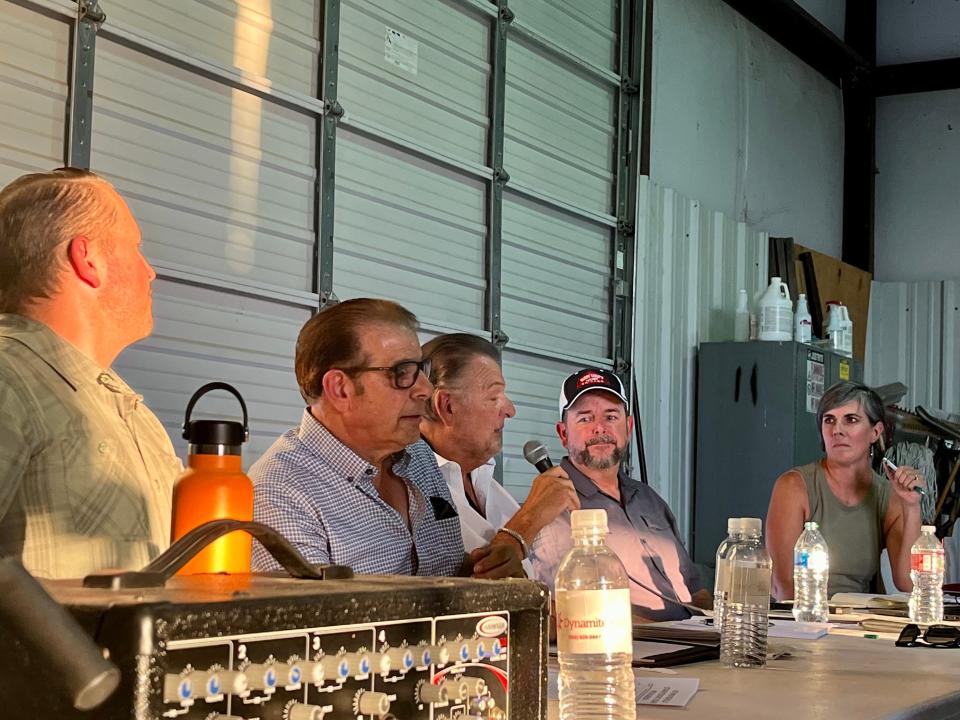
Rio Verde Foothills Standpipe District Chairperson Meredith DeAngelis said she expects that the cost of purchasing water from a water provider will be much lower than Scottsdale's fees for treatment and transport to the standpipe. Both costs will be reflected on residents' monthly bills, as will the cost of hauling water from the city standpipe to residents' homes.
The agreement also includes new verbiage that will require self-haulers — residents who fill and haul their own water tanks rather than paying a water hauling company for the service — to obtain liability insurance.
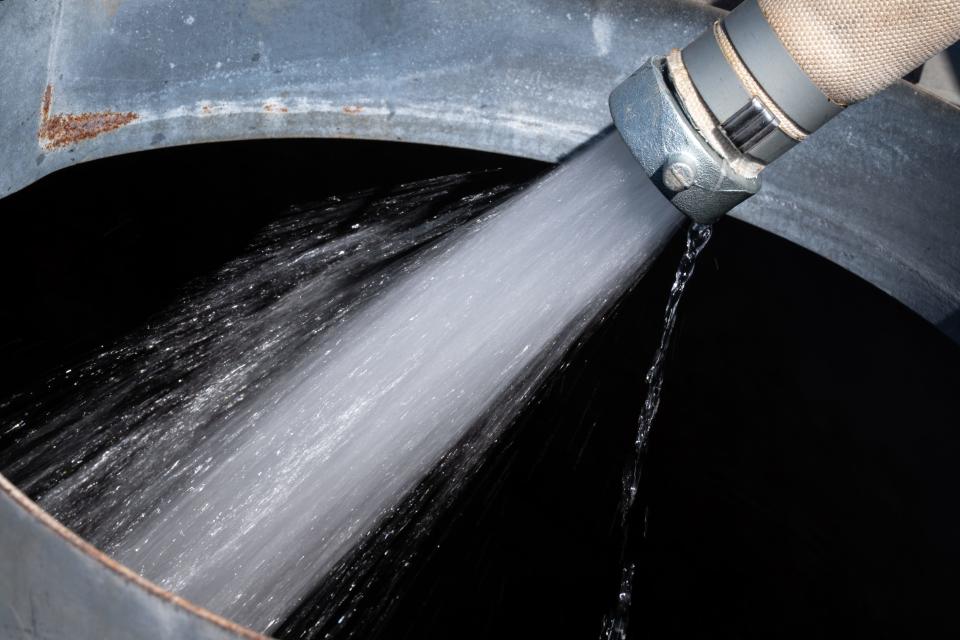
Where will the water come from?
Standpipe district officials are working toward an agreement with private water utility Epcor, DeAngelis said.
Even if Scottsdale leaders approve a short-term agreement Tuesday, water won't begin to flow to Foothills residents until an agreement is signed between the district and a water provider. DeAngelis said she expects to have that contract finalized by the end of the week.
The standpipe district leaders and Epcor officials are working together to determine billing logistics, she said.
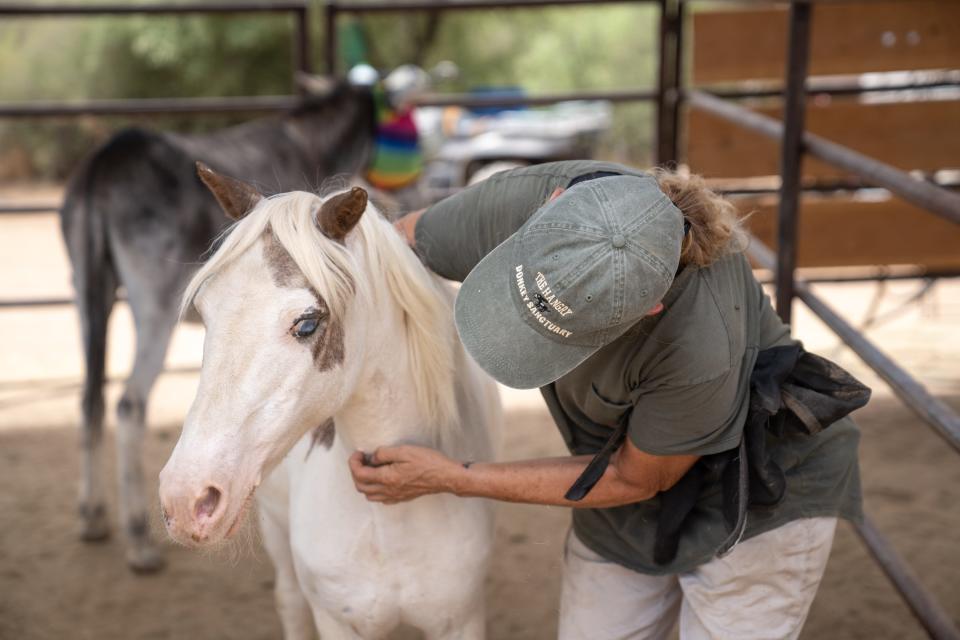
How many people will the agreement serve?
A survey sent out to the community by standpipe district officials found that more than 760 respondents want access to hauled water.
The legislation establishing the standpipe district includes a provision allowing it to serve a maximum of 750 households.
But not all of the residents who responded to the survey need immediate access to a hauled water supply, DeAngelis said. Some, for instance, have wells that serve their daily water needs and simply want hauled water as a backup option in case their groundwater runs dry.
Ultimately, residences that received water from Scottsdale prior to the January shutoff will be prioritized, DeAngelis said. She expects that pre-registration for hauled water from the standpipe district will begin in the next week.
She said the standpipe board will also require all haulers to sign contracts agreeing that water obtained from the fill site will not be used to supply customers outside the community.
In April, an investigation by The Republic found that no government entity is required to track where hauled water comes from and where it goes in Arizona, meaning haulers regularly break rules set by suppliers. DeAngelis said she and other standpipe district members intend to work with their water provider to enforce their stipulations.
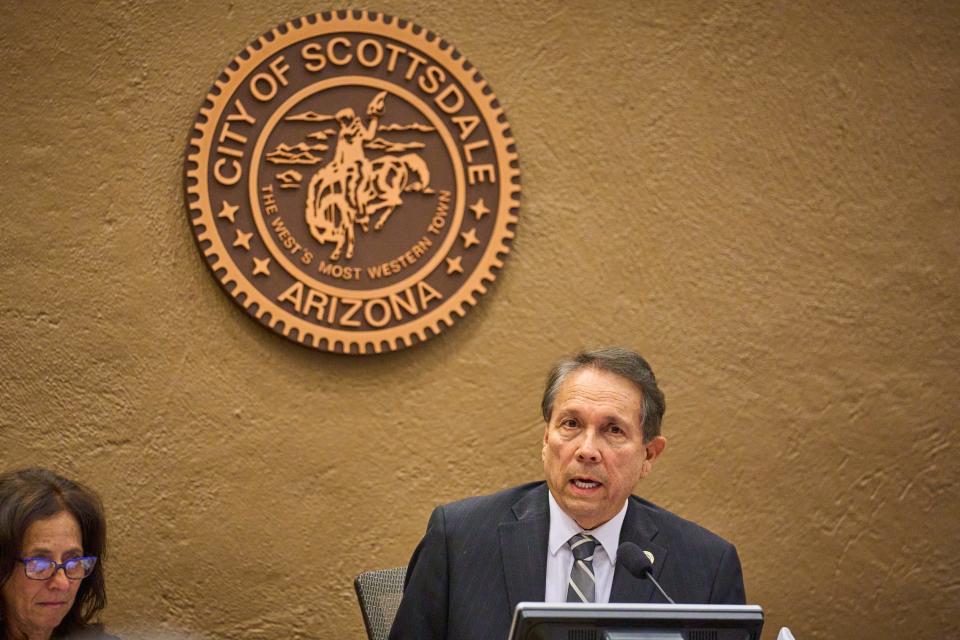
Does the agreement mark the end of Rio Verde Foothills' water woes?
The agreement is only intended to be a short-term solution to the community's water woes. Under its provisions, it will expire at the end of 2025.
Therefore, the community must also find a long-term water supply solution. Currently, service to the community through a long-term arrangement with Epcor is the main option on the table.
Epcor is regulated by the Arizona Corporation Commission so that entity first must approve its application to serve the community permanently.
Following a dayslong hearing on the issue in April, Commission Administrative Law Judge Charles Hains ordered all parties in the case to submit closing briefs in May. Hains is due to issue a recommended order.
After Hains releases his recommendation, commission staff will add the case to an open meeting agenda, and it will be considered by the elected regulators who will vote on the application.
It's unclear exactly how long the process might take, according to commission staff. Even if Epcor's application is approved, company officials said it could take the utility an additional 24 to 36 months to get a long-term supply of water to Rio Verde Foothills.
Sasha Hupka covers Maricopa County, Pinal County and regional issues for The Arizona Republic. Do you have a tip about a hauled water community? Reach her at sasha.hupka@arizonarepublic.com. Follow her on X, formerly Twitter: @SashaHupka. Follow her on Instagram or Threads: @sashahupkasnaps.
Reporter Sam Kmack covers Tempe, Scottsdale and Chandler. Reach him at sam.kmack@arizonarepublic.com and follow him on Twitter @KmackSam.
This article originally appeared on Arizona Republic: Rio Verde Foothills will see water by end of month, per new deal

